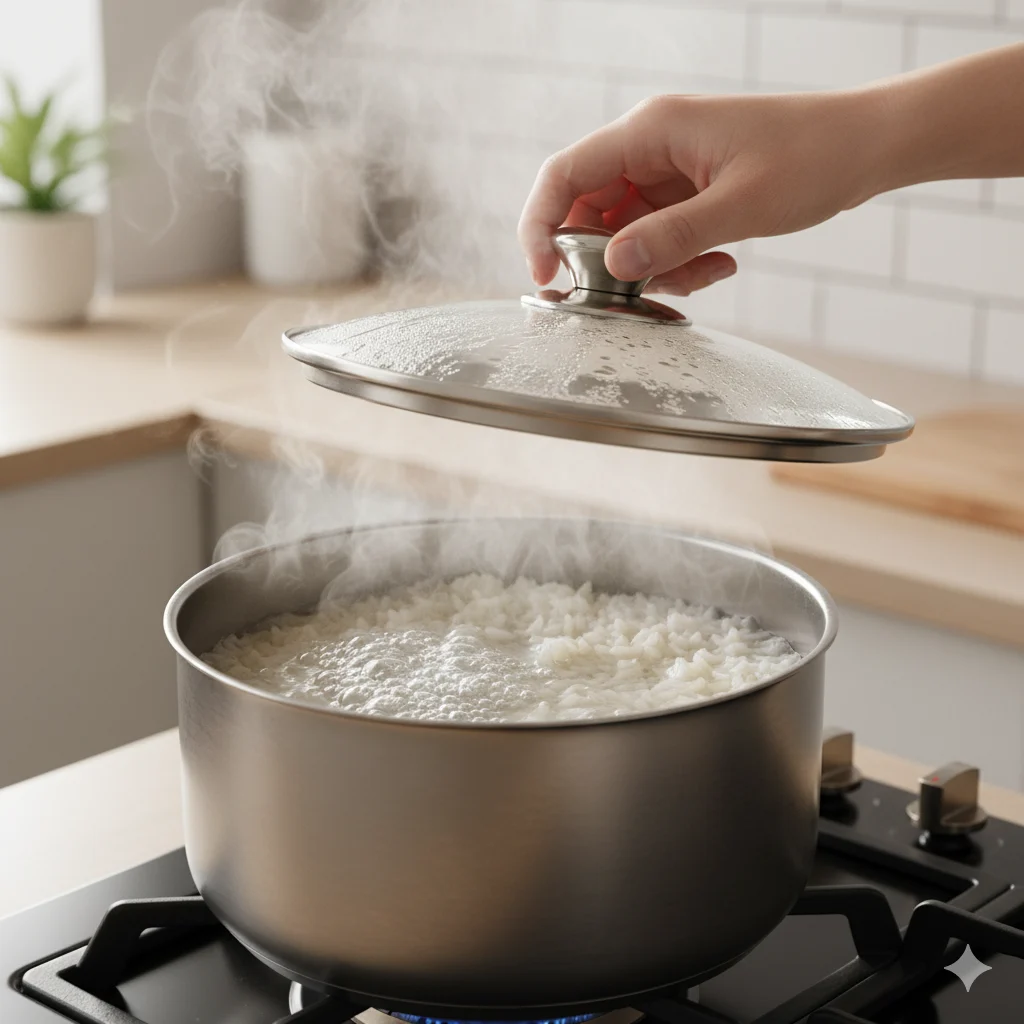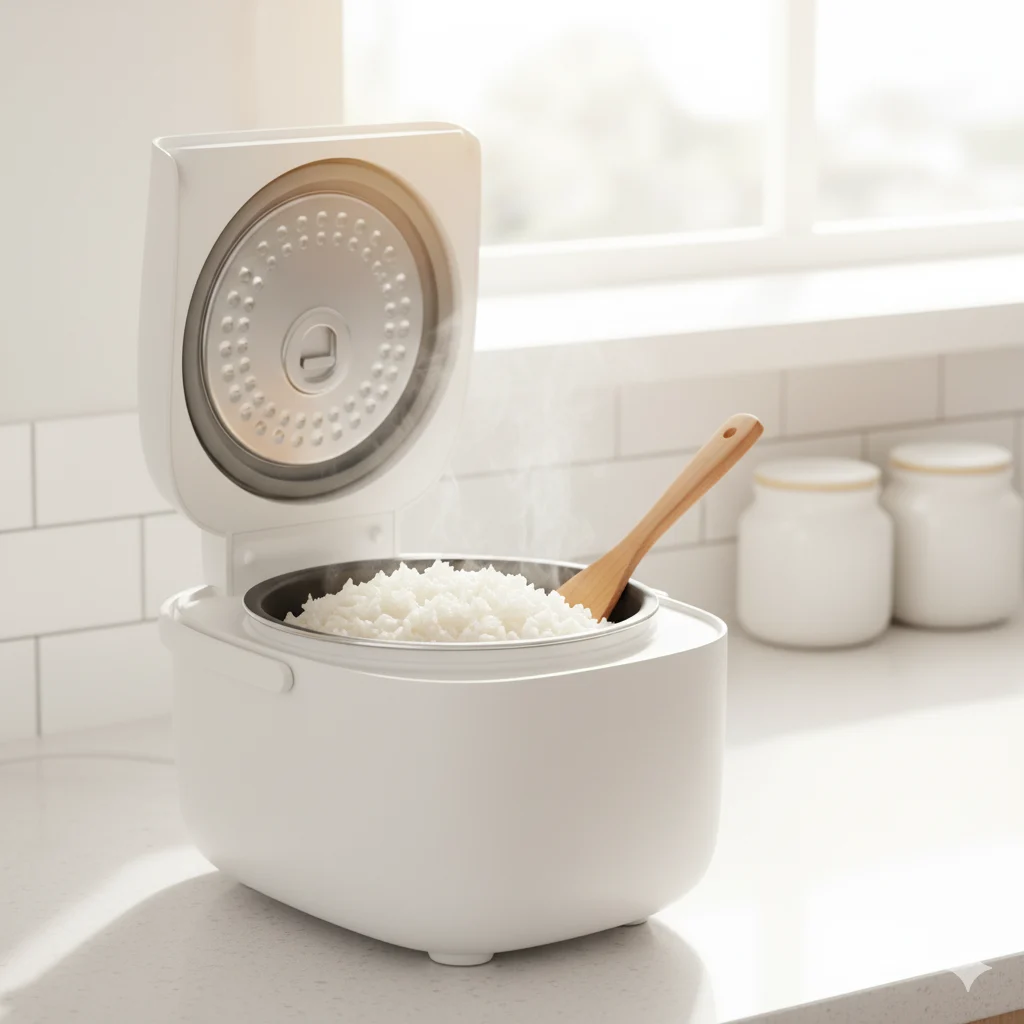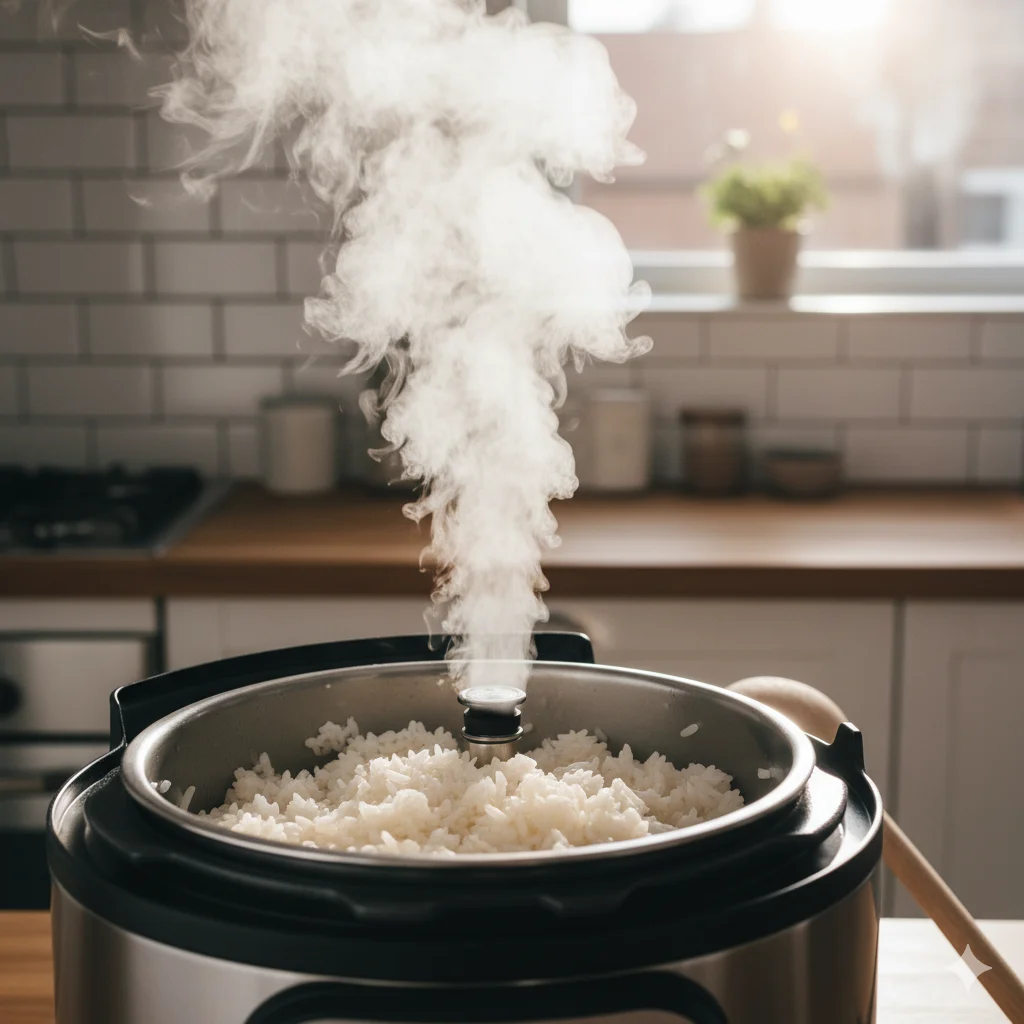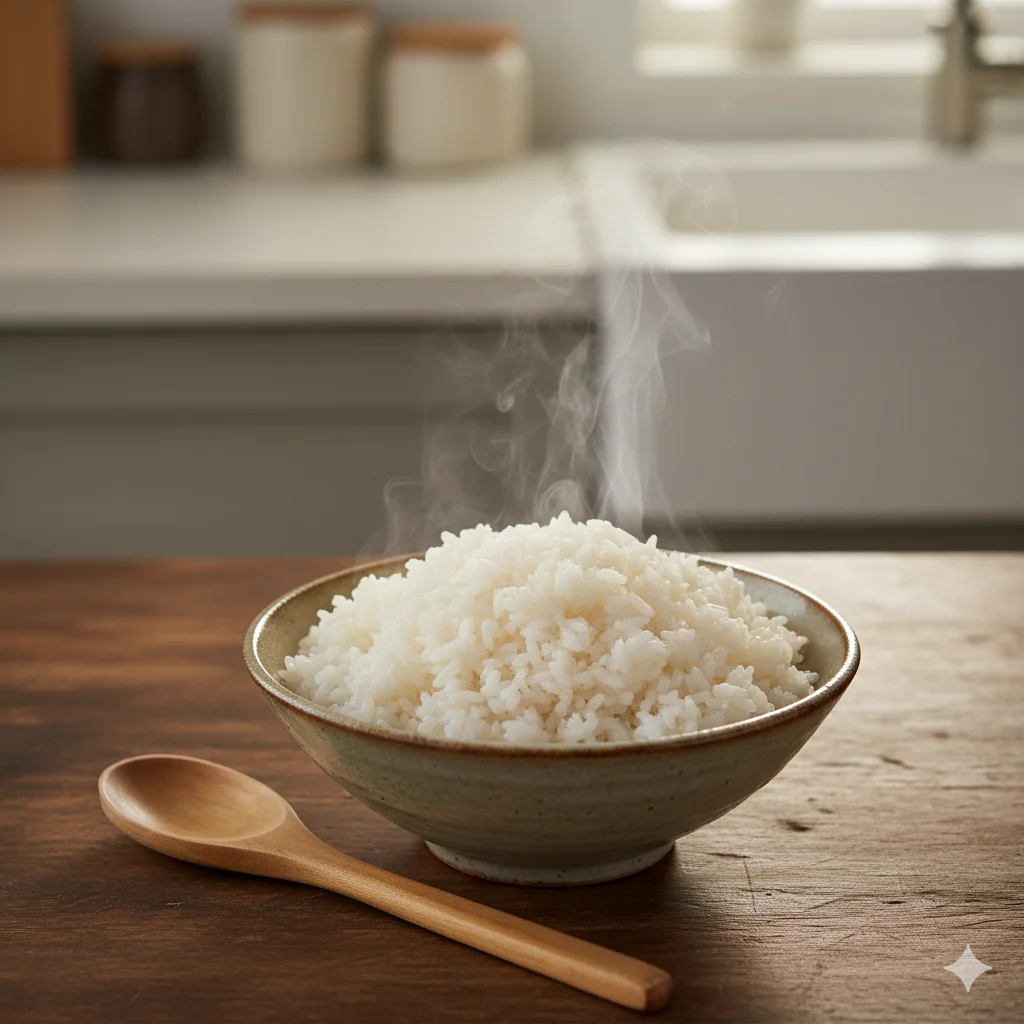Cooking rice might seem simple, but getting it perfectly soft, fluffy, and evenly cooked can be tricky for many beginners. Whether you’re making basmati, jasmine, brown, or white rice, the secret lies in understanding ratios, timing, and technique.
In this guide, you’ll learn how to cook rice using different methods — stovetop, rice cooker, and Instant Pot — with step-by-step instructions, troubleshooting tips, and expert advice to make sure every grain turns out delicious.
🍚 Why Rice Matters in Everyday Cooking
Rice is one of the most versatile and widely eaten foods in the world. From Asian stir-fries to Spanish paella and Caribbean dishes, rice is at the heart of countless cuisines. It’s budget-friendly, nutritious, and easy to prepare once you know the proper steps.
Learning how to make rice perfectly isn’t just a kitchen skill — it’s a foundation for endless recipes.
🧂 Essential Tools and Ingredients
Before starting, make sure you have:
- 1 cup of rice (any variety)
- 2 cups of water or broth (adjust depending on rice type)
- A medium pot with lid, rice cooker, or Instant Pot
- Measuring cups
- Fine-mesh strainer
- Optional: salt, butter, or oil for flavor
💡 Expert Tip: Always use fresh rice. Old rice grains absorb water differently and may turn mushy.
🔹 Step 1: Choose the Right Type of Rice
There are many types of rice, each requiring slightly different cooking methods:
| Rice Type | Texture | Water Ratio | Cooking Time |
|---|---|---|---|
| White Rice | Soft & fluffy | 1:2 | 15–18 mins |
| Basmati Rice | Long & aromatic | 1:1.5 | 12–15 mins |
| Jasmine Rice | Sticky & fragrant | 1:1.25 | 10–12 mins |
| Brown Rice | Nutty & firm | 1:2.5 | 35–45 mins |
| Wild Rice | Chewy & earthy | 1:3 | 40–50 mins |
Understanding the water-to-rice ratio is key to avoiding sticky or undercooked rice.
🔹 Step 2: Rinse Your Rice
Rinsing rice removes extra starch, which helps prevent clumping and stickiness.
How to rinse rice properly:
- Place rice in a fine-mesh strainer or bowl.
- Rinse under cold water until the water runs clear.
- Drain completely before cooking.
💡 Rinsing is especially important for white, jasmine, and basmati rice but optional for brown rice.
🔹 Step 3: Cooking Rice on the Stovetop
The stovetop method is classic, reliable, and perfect for small batches.

Steps to cook rice on the stove:
- Add rinsed rice and water (or broth) to a pot.
- Add ½ teaspoon of salt and 1 teaspoon of butter or oil (optional).
- Bring to a gentle boil over medium heat.
- Once boiling, reduce heat to low, cover with a tight-fitting lid, and simmer.
- Do not lift the lid while cooking — let steam do the work.
- After 15 minutes (for white rice), remove from heat.
- Let it rest for 10 minutes, then fluff with a fork.
✅ Result: Soft, fluffy, and separate grains every time.
🔹 Step 4: Cooking Rice in a Rice Cooker
If you’re a beginner, this is the easiest way to make rice — hands-free and consistent.

How to use a rice cooker:
- Rinse your rice and add it to the cooker.
- Add water based on your rice type (usually 1:2).
- Close the lid and press the “Cook” button.
- When the light changes to “Warm,” let it rest for 5–10 minutes.
- Fluff and serve!
💡 Modern rice cookers adjust automatically, so you never have to worry about overcooking.
🔹 Step 5: Cooking Rice in an Instant Pot
The Instant Pot or pressure cooker method is quick and efficient.

Instructions:
- Rinse 1 cup of rice.
- Add 1 cup of water (for white rice).
- Lock the lid and set the valve to “Sealing.”
- Cook on Manual (High Pressure) for:
- White rice: 3 minutes
- Brown rice: 22 minutes
- Let the pressure naturally release for 10 minutes.
- Open the lid carefully and fluff with a fork.
✅ This method gives consistently perfect, fluffy rice in less time.
🔹 Step 6: How to Add Flavor to Rice
If you want to make your rice more delicious, try these simple additions:
- Replace water with chicken or vegetable broth.
- Add a bay leaf, clove of garlic, or ginger slice while cooking.
- Mix in a teaspoon of olive oil or butter for aroma.
- Sprinkle with fresh herbs like cilantro or parsley before serving.
🔹 Step 7: Common Mistakes (and How to Fix Them)
| Mistake | Reason | Fix |
|---|---|---|
| Rice is mushy | Too much water | Use a fine strainer to remove excess water |
| Rice is hard | Undercooked or not enough water | Add 2 tbsp water and steam again for 5 mins |
| Rice is burnt | Heat too high | Always simmer on low with lid on |
| Rice sticks to pot | Not rinsed properly | Always rinse before cooking |
🧠 Cooking rice is as much about patience as it is about ratio and temperature.
🔹 How to Store and Reheat Cooked Rice
If you’ve made too much rice, don’t worry!
Storage:
- Cool rice completely before storing.
- Place in an airtight container in the refrigerator.
- Use within 3–4 days.
Reheating:
- Sprinkle a few drops of water on top before microwaving.
- Cover loosely and heat for 1–2 minutes.
- Fluff with a fork and serve.
🔹 Cooking Rice for Special Diets
If you’re eating healthy or managing calories, rice can still fit your plan:
- Brown rice – Higher in fiber, perfect for digestion.
- Basmati rice – Low to medium glycemic index.
- Wild rice – Protein-rich and great for plant-based diets.
🍃 Pair rice with veggies, lean meats, or lentils for a balanced meal.
🍴 Expert Tips for Cooking Rice Perfectly
- Always let rice rest after cooking. This redistributes steam for fluffier texture.
- Avoid stirring while cooking; it releases starch and makes rice sticky.
- Use the right lid — tight-fitting to trap steam.
- Measure carefully; even small ratio errors can affect texture.
- Keep your rice cooker clean to prevent residue buildup.
🔹 Frequently Asked Questions (FAQs)
1. Do I need to rinse rice before cooking?
Yes, rinsing removes excess starch, giving you light and fluffy rice.
2. Can I cook rice without a rice cooker?
Absolutely. The stovetop method is classic and works perfectly when done with the correct water ratio.
3. How can I keep rice from sticking together?
Use the right ratio, rinse well, and avoid stirring while cooking.
4. What’s the best water-to-rice ratio?
Generally, 1 cup rice to 2 cups water for white rice. Adjust slightly based on rice type.
5. How long does rice last after cooking?
Up to 4 days in the refrigerator in a sealed container.
🏁 Conclusion
Cooking rice perfectly is all about understanding ratios, patience, and timing. Whether you’re using a stovetop, rice cooker, or Instant Pot, once you master these basic steps, you’ll enjoy soft, fluffy, and flavorful rice every time.
So next time you’re preparing a meal — from curry to stir-fry — you’ll know exactly how to cook rice like a pro. 🍚










